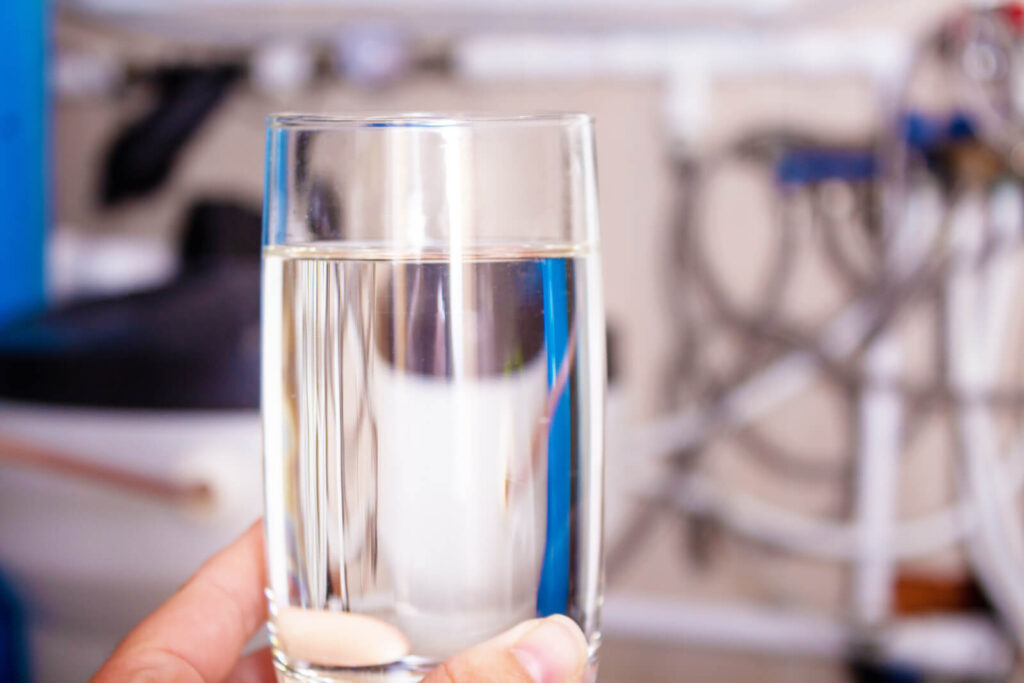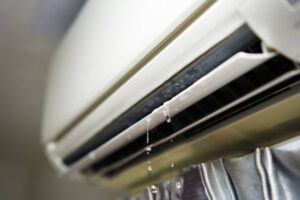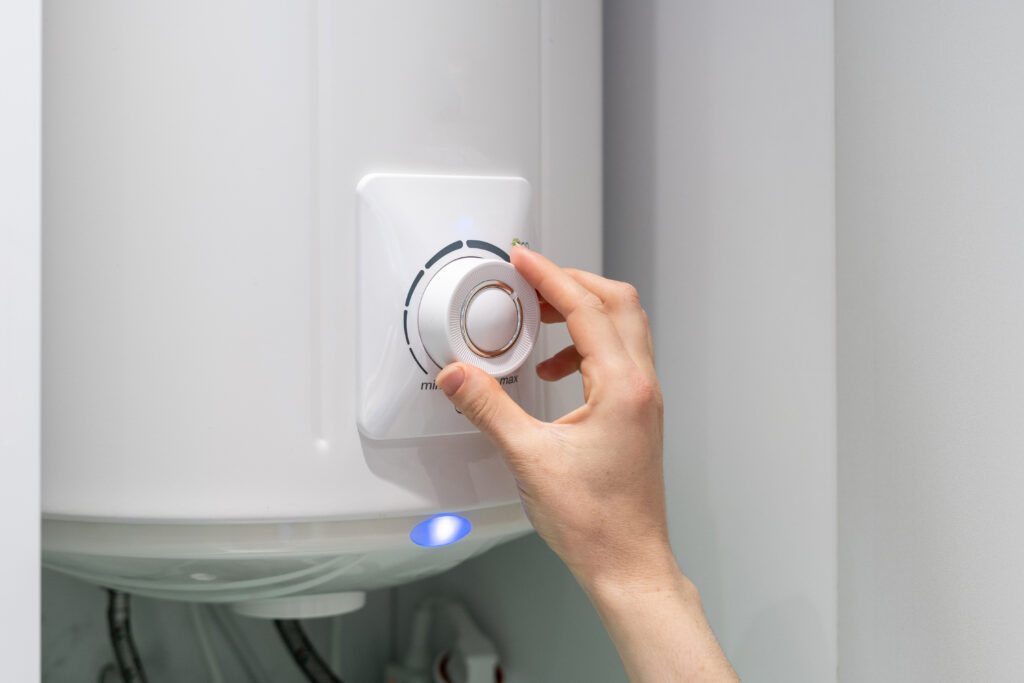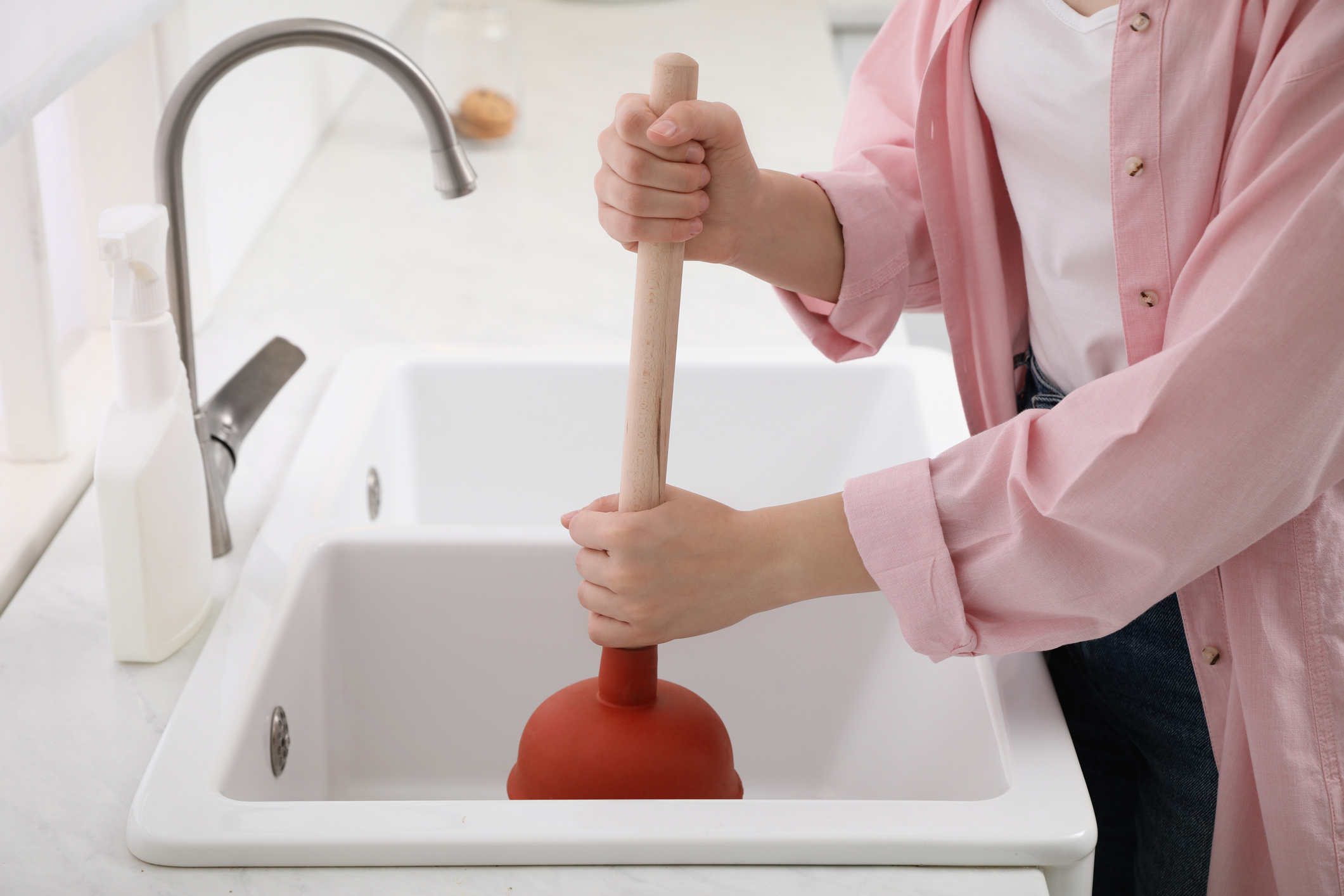Have you ever noticed that it takes more time to wash the soap from your hair when you shower? Do you lack substantial water pressure in your home? Do you see mineral stains on your dishes even after they have come out of the dishwasher? Well, that may mean you have hard water flowing to your home.
To conclusively find out if your home has hard water, you’ll need to conduct a water hardness test to check for high calcium levels in the water. These tests can be purchased online or conducted by a professional plumber. There are some factors that may be strong indicators that you have hard water in your neighborhood and area. If your home is located in a region that was built on limestone or your home draws water from a well, you likely have hard water and may want to consider installing a water softener in your home.
You may be asking yourself, what does a water softener do? To be clear, there are both disadvantages and advantages to installing a water softener in your home. Read on to find out everything you need to know about hard water vs. soft water and the benefits of water softeners.
Pros and Cons of Having a Water Softener

Throughout the years, the Environmental Protection Agency has been in charge of regulating the quality of our nation’s tap water and has done a decent job, aside from isolated incidents. Due to the legislative process, today there are regulations in place for nearly 90 different contaminants in our drinking water. But there are no current regulations in place for water hardness as it isn’t a public health and safety issue.
The U.S. Geological Survey (USGS) reports that most American homes have at least moderately hard water with some regions being negatively impacted by very high hardness levels. Aside from at-home hard water testing kits and contacting a licensed plumber, you can request a Water Quality Report from your local utility company. If you have a private well on your property, contacting your local municipality supplier wouldn’t apply.
By weighing the pros and cons of water softeners and comparing the costs, you can get a clearer understanding if this investment is right for your home and lifestyle. Keep in mind that hard water, over time, may damage your home’s plumbing system if the calcium buildup overwhelms your system. But soft water has an equal, yet different impact on your plumbing system, pipes and septic system.
So what does a water softener do? Water softener systems, also referred to as ion exchange units, remove calcium, magnesium and heavy minerals from tap water. These devices work by exchanging calcium ions with sodium and potassium through a series of resin beads in the filter itself. Now that you know how a water softener works, let’s take a look at the pros and cons of installing a water softener in your home.
Pros of Installing a Home Water Softener System
- One of the glaring benefits of investing in a water softener is that it reduces the hardness of the water coming into your home, meaning less soap and detergents needed to adequately bath and clean clothes.
- Reduces staining and limescale buildup on dishes, fixtures and in your shower/bathtub.
- You’ll save money on your utility bill for hot water usage due to less corrosion in your hot water heater tank.
- Water softeners only remove minerals that are responsible for causing hardness and nothing else.
Cons of Installing a Water Softener
- Doesn’t provide favorable drinking water. Subjectively, soft water doesn’t taste as good as hard water and doesn’t provide the calcium ions that some need in their drinking water for stronger teeth and bones.
- A water softener is not a substitute for a home filtration system as it doesn’t remove lead or other heavy metals.
- Installing a water softener may lead to a higher heavy metal count in your home’s drinking water. This could impact not only your health, but your home’s plumbing system in negative ways.
At the end of the day, it depends on personal preference. Many homeowners install water softeners because it is better for bathing and showering since it isn’t as harsh on hair and skin. And while it’s a fair trade on how both hard and soft water impacts your plumbing system, it will be up to the homeowners whether or not a water softener is the right investment for them.
Contact the Professionals at Village Plumbing, Air & Electric
Whether you need to have a home hard water test, install a water softener in your home, or you’re faced with a severe plumbing emergency like a burst pipe or a leaky faucet, the professional plumbers at Village Plumbing, Air & Electric can help! We can be there day or night to handle any plumbing emergencies when you need us the most. Contact one of our customer service representatives (713) 526-1491 today!





